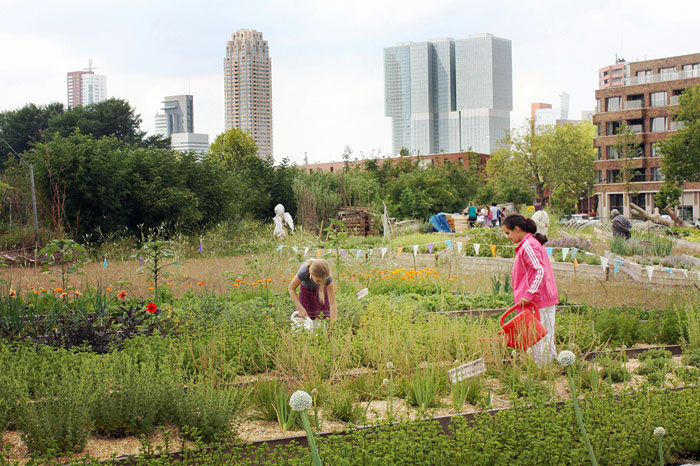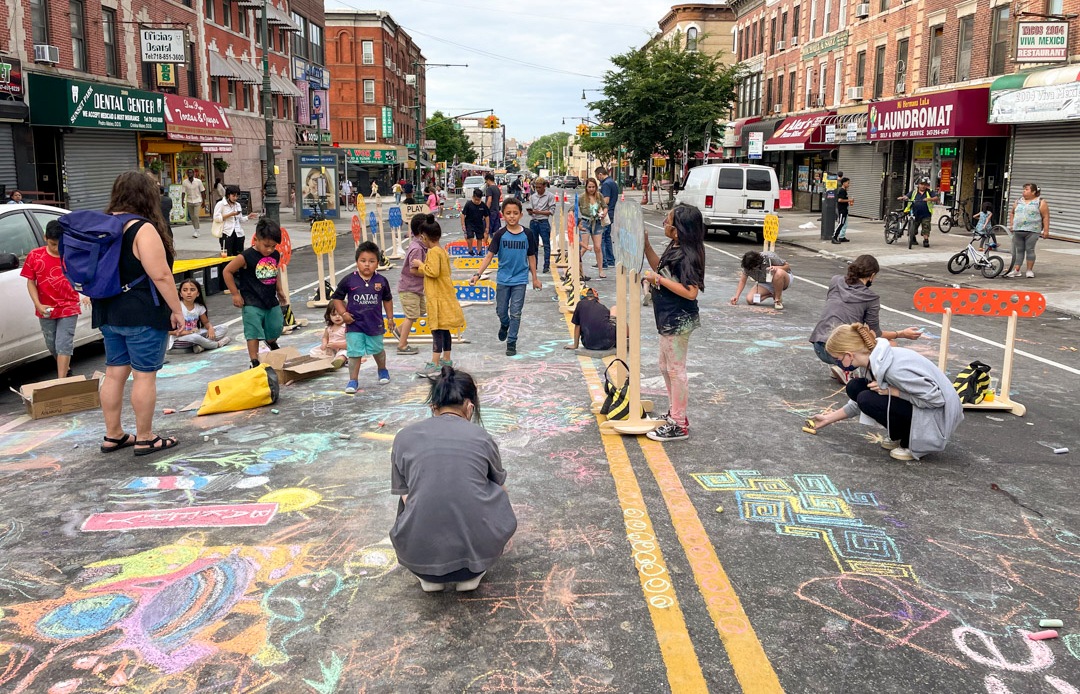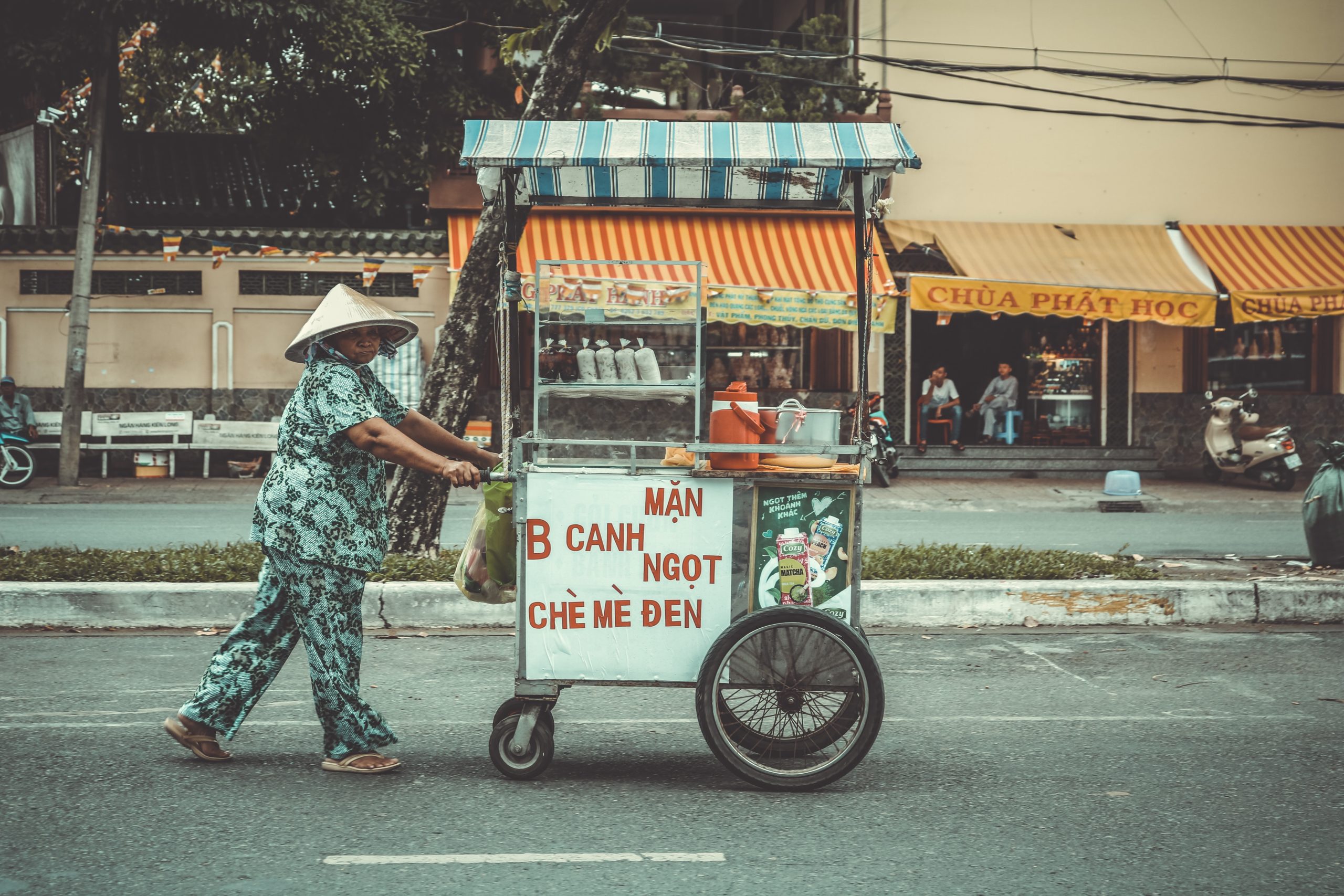The Global Platform for the Right to the City (GPR2C) is gearing up to celebrate a fantastic milestone – our 10th anniversary in November 2024.
We’re planning various moments of reflection, celebration and gratitude for the amazing members and allies we’ve had the privilege to collaborate with.
Your participation and support mean the world to us, and we can’t wait to celebrate this incredible journey with you. Here’s to a decade of learnings, collaboration, and making a difference together towards advancing the Right to the City for everyone!
Our priorities for 2024
Climate Justice
Justice that links development and human rights to achieve a human-centred approach to addressing climate change, safeguarding the rights of the most vulnerable people and sharing the burdens and benefits of climate change and its impacts equitably and fairly.
Commons
Resources (material or immaterial) and social practices, the commons are at the core of the innovative right to the city and the municipalist movements and agendas. Commoning provides a concrete tool for putting the social and environmental function over accumulation, privatization and speculation, ensuring equal access and benefit to all. It represents a productive opportunity to experiment with new forms of public-community collaboration.
Care
Care work refers to the activities that ensure the reproduction and sustaining of life. This encompasses care-giving for those that require specific care, but also day-to-day activities that are carried out on the domestic level and that ensure the sustaining of life in adequate conditions, such as cooking and cleaning.
Our timeline for 2024
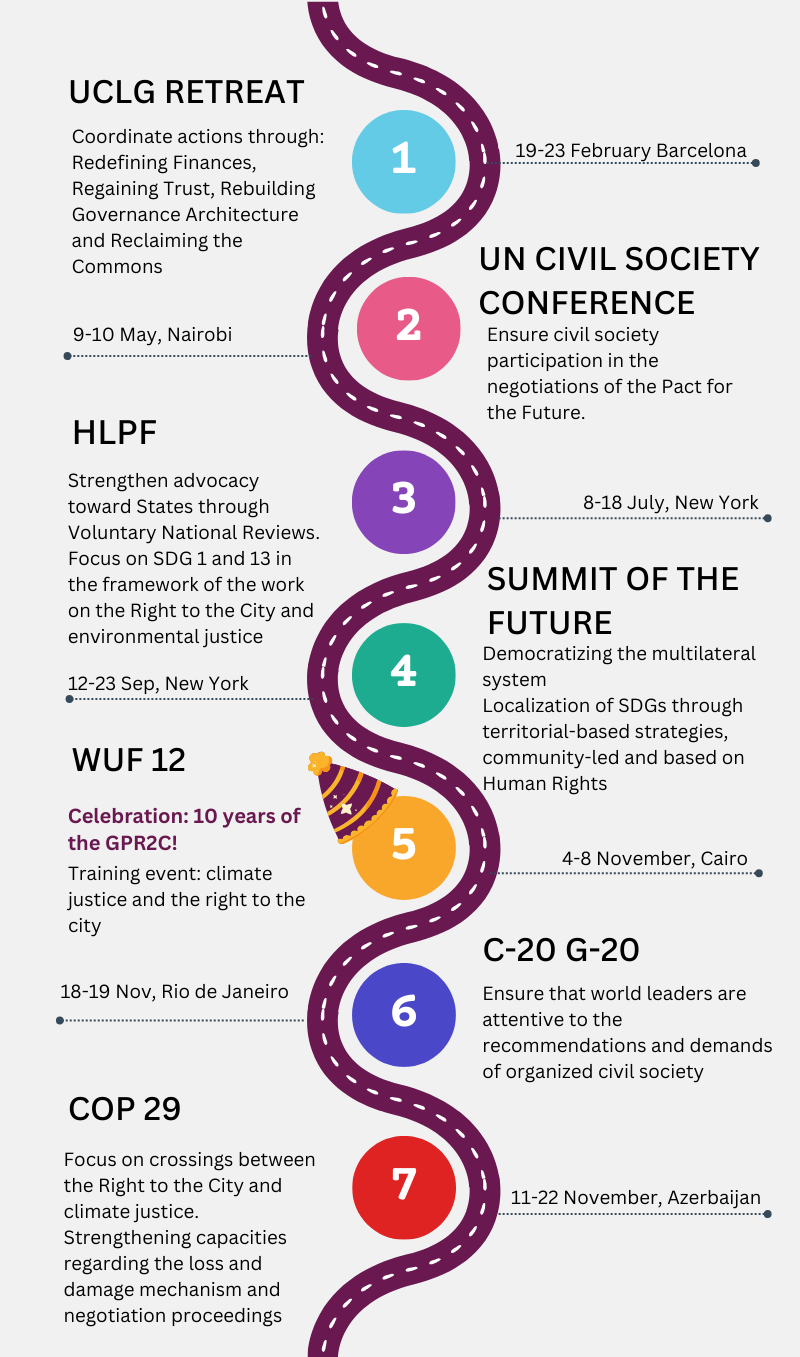
Why the Right to the City?
The Right to the City is the right of all inhabitants, present and future, permanent and temporary, to inhabit, use, occupy, produce, govern and enjoy just, inclusive, safe and sustainable cities, villages and human settlements, defined as commons essential to a full and decent life.
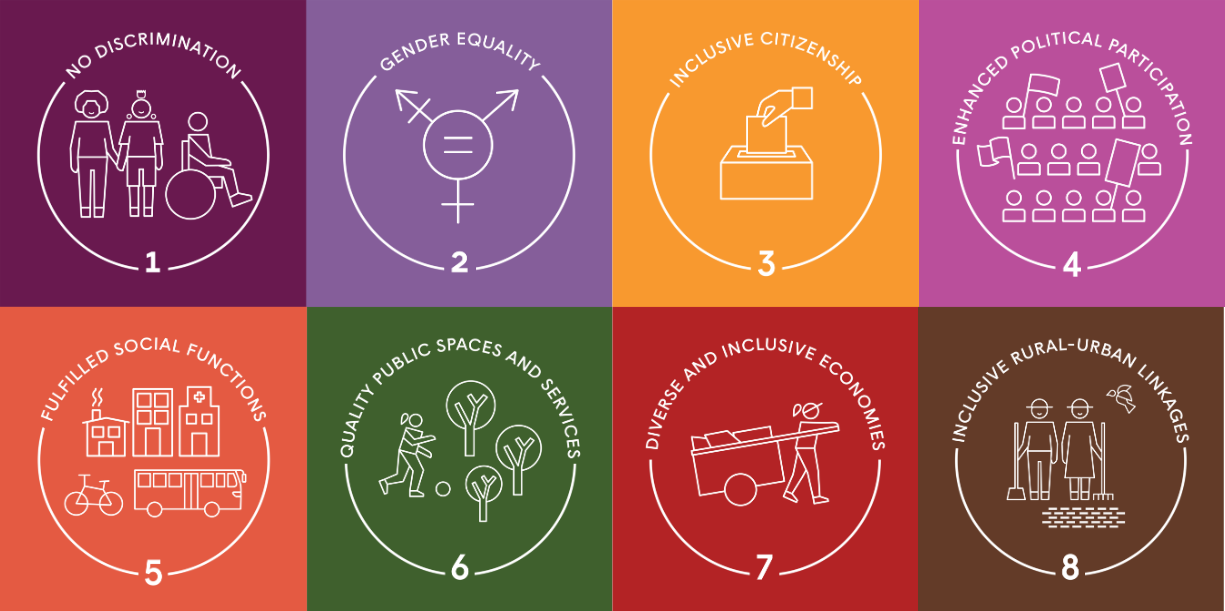
Under the current global model of urban development, informed by neoliberal and increasingly violent and authoritarian ideas and institutions that prioritize economic interests at the expense of communities and social justice, we are seeing several interrelated crises: climate crisis, growing socio-economic inequalities crisis and democracy crisis. The need for a paradigm shift is clear. It is also evident that new models not only need to place the protection of rights and key resources at the center, but also rely on more open and participatory approaches that are right-based and include an intersectional approach.
The Right to the City shifts the focus of our cities away from being playgrounds for capital and profit. Instead, we work towards territories that facilitate and support people to freely live their dignity and to express their culture, political values/principles, in peace and respect; to participate freely in a political life and decision-making processes, promoting active citizenship and different forms of political organization and action; emphasizing the right to self-managed processes, while co-managing and cocreating the public realm and the commons. By reclaiming cities and territories as collective places for people, by people, we can create more diverse and effective channels for inclusion and participation of communities that are historically marginalized and experience under-representation and exclusion at, such as women, children and youth, racialized populations, migrants and refugees, LGBTQIA+ populations; indigenous peoples, people with disabilities and older persons.
What‘s the Global Platform for the Right to the City?
The Global Platform for the Right to the City (GPR2C) aims to inspire a better future for all human settlements. The GPR2C is an open, flexible, diverse network of civil society and local government organizations committed to political action and social change through the promotion, defense and fulfillment of the Right to the City at all levels, centering to the voices of people and communities affected by exclusion and marginalization.
The GPR2C brings together social movements and organizations, academics, international networks, human rights defenders, NGOs, local governments and others to collaborate towards the emergence of new emancipatory utopias and social bonds in our societies.
The GPR2C is organized on the basis of trust and active participation. Therefore, the membership is open to all actors who share the vision and mission of the Platform, regardless of their size, contributions or location.
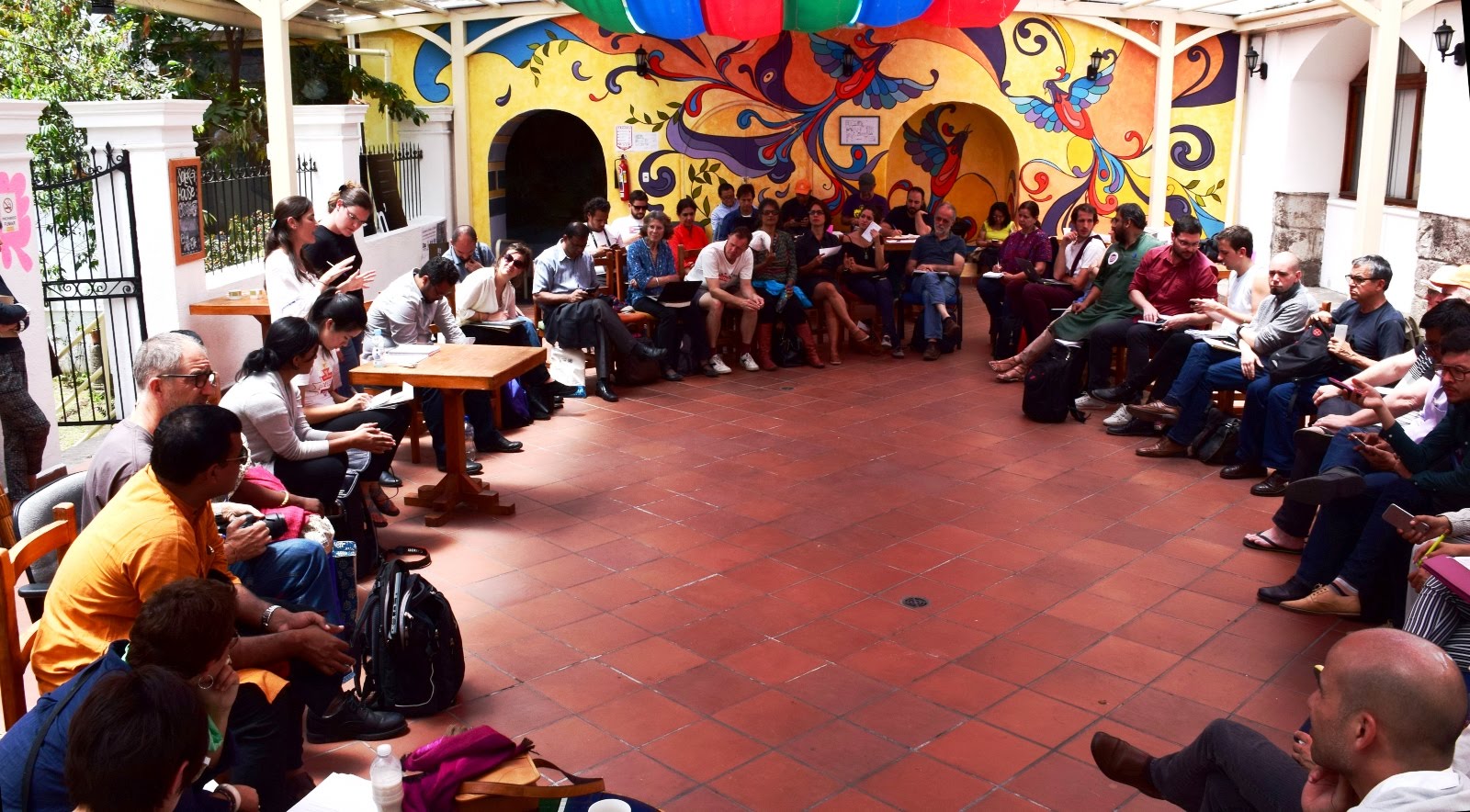
We look forward to your continued involvement in the
exciting Right to the City activities planned for 2024!
Stay tuned and engaged! More information coming soon.


